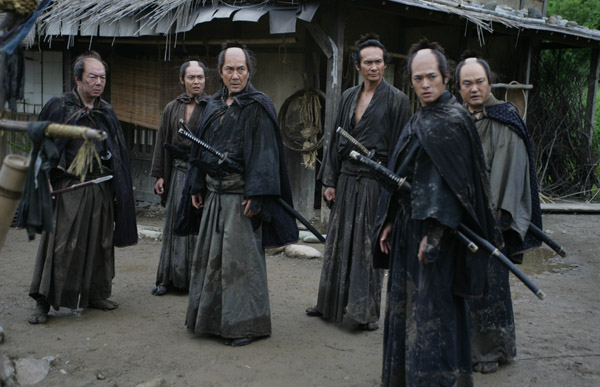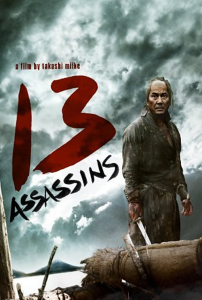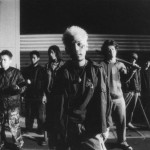Dir: Takashi Miike
By Chris Owen
In a divergence from director Takashi Miike’s usual subject matter and style, 13 Assassins represents Miike’s connection to a more conventional approach to filmmaking and a more traditionally Japanese subject matter of the ‘Chanbara eiga’ or the Samurai film. The Jidai-geki (period drama) setting of 13 Assassins is a far-cry from the modern day milieu of his most famous and revered films.
When a sadistic and murderous Lord rises in political rank, the Shogun’s Justice Minister covertly enlists the help of the eponymous Samurai to neutralise the threat that the Lord presents, preventing his further ascension and access to power.
There is a sharp disparity between 13 Assassins and Miike’s previous work; films such as Ichi the Killer and Audition stylise extreme violence and the grotesque, presenting bizarre characters and situations that are undeniably overstated as a means of shocking the audience. However, 13 Assassins is a display of measured and distinctly traditional filmmaking. Miike focusses primarily on the historical aspect of the narrative, scrutinizing the problems with the traditional system of power in 19th Century Japan as opposed to focusing on the scenes of violence as he would have in a film like Ichi the Killer.
Miike’s direction is sharp and astute, particularly in the monolithic 50 minute climactic showdown between the Lord, his men and the 13 samurai. His camera flows nimbly, alternating the focus of his shots with great ease and measure, effectively connecting each image in a scene which could have so easily been monotonous and tiresome, which is surely a signifier of Miike’s skill as an auteur and a master of old-fashioned cinema as well as the more modern style that he is known for.
Takashi Miike’s film is a brilliant demonstration of the way in which he is a masterful director and filmmaker. The very fact that a film which contains a 50 minute fight sequence can also effectively pick apart the problems with the bygone political system of Japan prior to the Meiji era is testament to his directorial prowess.







